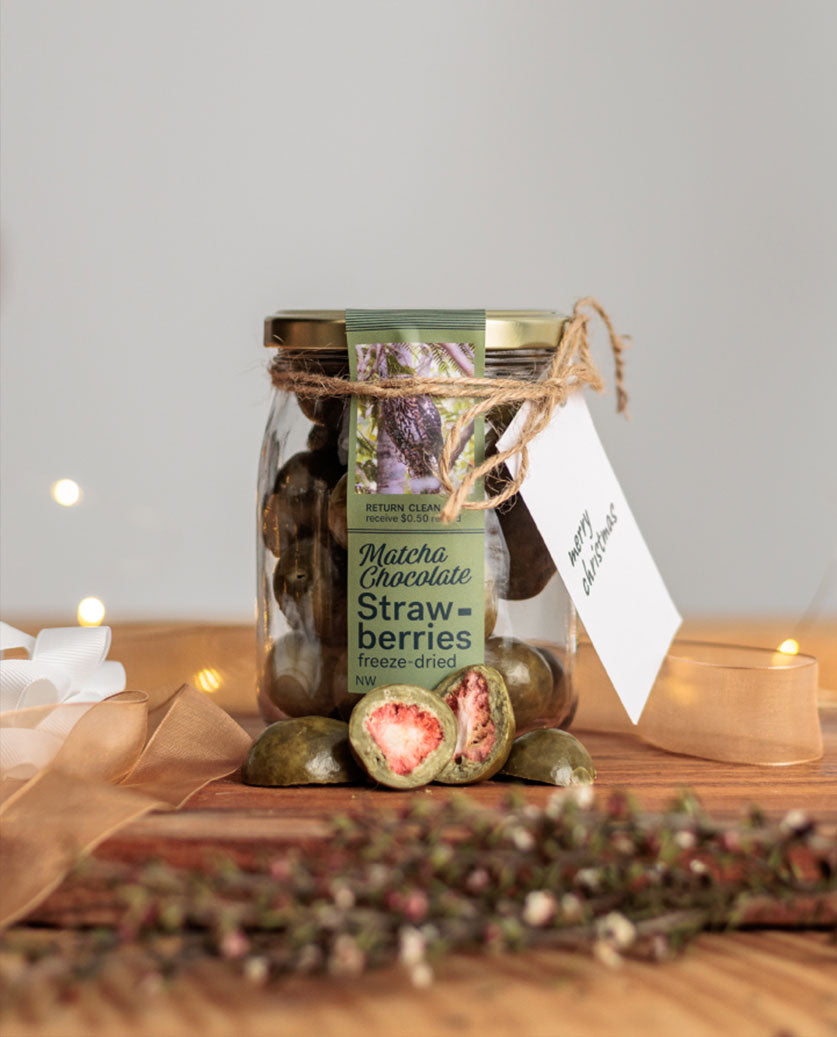5 Ways to Reduce Your Kitchen Waste
It is estimated that one-third of all food produced for human consumption globally ends up as waste. Couple this with disposable kitchen items and plastic-packaged goods and kitchen waste is a serious problem on our hands. But don’t panic just yet… There is so much you can do in your own kitchen to reduce waste and alleviate some of the environmental stresses. Read on for our top five ways to reduce your kitchen waste. Start with one or two key behaviour changes and as you adjust your lifestyle, add more on over time. Soon enough, these will become second nature!
A Composting System
Chances are that most of the waste coming from your kitchen is food waste. While food is biodegradable, throwing it in the bin with your other rubbish means it ends up in landfill and has environmental ramifications. Landfills are so tightly packed and are virtually free from oxygen, therefore it’s very difficult for food to break down and biodegrade there. Even if food waste does eventually break down in landfill, it releases the greenhouse gas methane, which contributes to climate change and can also cause a negative impact on human health.
Wasting food in landfill is also wasting resources, such as the water, soils and energy it takes to grow food, as well as the energy to package and transport it. Composting can help minimise food waste, allowing space and oxygen for food to break down effectively.
There are a few different options for composting food waste in the home:
-
DIY: From small to large, whether you’re living in an apartment or on a lifestyle block, you can have your own at-home compost. Purchase or make your own composting box at your chosen size, purchase some existing compost to get you started, then begin composting your food waste, being sure to put a lid on the box so the decomposing happens quickly.
-
Worm Farm: Worms can convert food waste into worm castings and a nutrient-rich liquid, both which act as quality fertilisers. Check out Hungry Bin, which has been designed to collect both the castings and liquid the worms have processed from food waste, saving it from landfill and instead putting it into something useful.
-
WeCompost: If you live in the Auckland area, you’re one of the lucky ones that can benefit from WeCompost drop-offs and pickups. For a fairly small fee, WeCompost will deliver a bin and collect compost from your home/office as regularly as needed. Check Google to see if your local area has a similar initiative.
GoodFor Tip: While cooking, keep a big bowl or container near you to toss any stems, peels and other scraps you plan to keep for compost. This way you won’t be caught accidentally throwing food scraps in the rubbish. Don’t forget to pop your brown paper bags in the compost or worm farm too!
Storage Jars & Containers
With a good stash of reusable jars & containers in your kitchen, the incentive to refill your pantry without any packaging is much higher. This doesn’t necessarily mean you must go out and buy a whole new collection of jars & containers to get started with your #packaglesspantry, but instead adopt a “reuse” and “upcycle” attitude; using old jars of peanut butter, pickles, sauces and dressings as pantry storage after giving them a good clean. For additional size varieties, check out our range of reusable jars. From Tiny Man to Big Boy, we’ve got jars & bottles in many sizes to suit all your pantry storage needs.
For leftovers and packed lunches, a collection of containers is helpful for storing and carrying. The Ever Eco Stackable Lunch Box is a great option for storing food and to carry it on-the-go as a lunchbox. Use metal and glass containers when getting takeaway food to avoid plastic takeaway containers. Be sure to let your takeaway joint know that’s how you’d like your food stored – you’d be surprised how open-minded restaurants are!
Reusable Coffee Cup, Drink Bottle & Straw
You knew it was coming, but it has to be said! By keeping these handy items in your kitchen there should be no need to opt for their plastic counterparts. Our Small KeepCup with a cork grip is the perfect size for your morning cuppa.
The new range of GoodFor LifeTime Bottles are the best looking reusable drink bottles on the market, so you can look good while doing good! Available in Bone White, Dolphin Green, Midnight, Pastel Pink and Powder Blue, there’s a colour for every member of the family! The textured finish of the new range has been designed to be even more durable, so it really should last you a lifetime. They’re not only great for keeping your filtered water cold for the day, but can also keep liquids hot for up to 12 hours.
Plastic straws are the 11th most common item found in ocean waste, so if you haven’t already jumped aboard the reusable straw bandwagon, now is definitely the time! We have a range of stainless steel drinking straws that are great for your daily smoothie or to use at kids’ birthday parties.
Eco-Friendly Dishwashing Tools
Washing your dishes shouldn’t produce more waste. Use dishwashing tools that can be recycled or composted at the end of their life, such as a Wooden Dish Brush with replaceable heads; copper sponges or a Veggie Brush for scrubbing dirt off organic veggies; and reusable tea towels made of recyclable organic cotton. We also think a collection of wooden spoons or a Wooden Spatula are pretty key to an eco-friendly kitchen. All of these items can be easily recycled once they’ve done their dash!
Quality Cookware
Rather than buying cheap, low quality (and sometimes plastic-coated) pots and pans, shop around second hand stores or ask around the family for quality, hand-me-down cookware. If you can’t find anything, rather than buying into the cheap alternatives, instead invest in one quality piece for the kitchen at a time and grow your collection from there. These are items you could keep for a lifetime if you choose wisely, so it’s definitely worth the extra time and money.
 GoodFor
GoodFor

